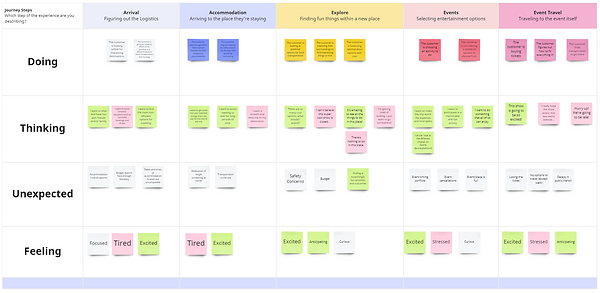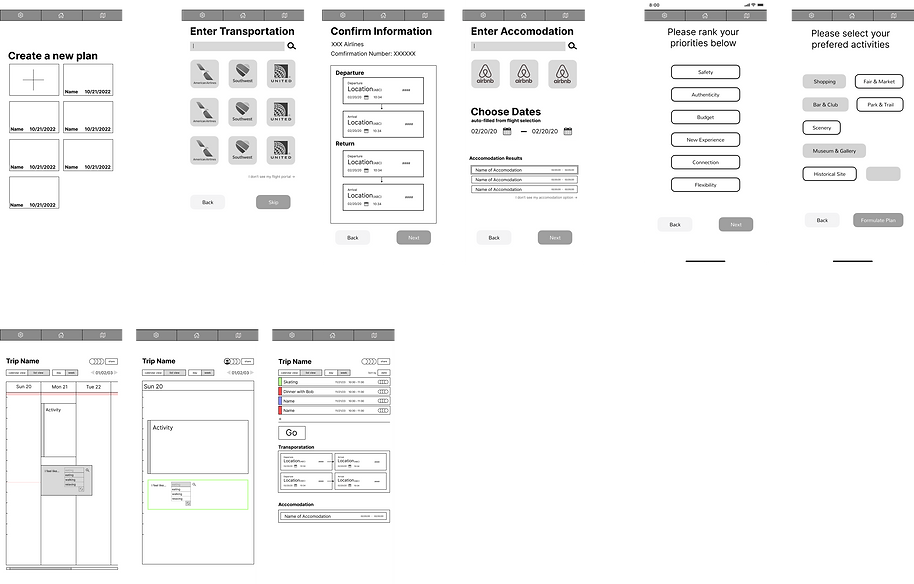Encouraging Spontaneity in Travel Planning
Vagary, Sep 2022 - Dec 2022

Problem Space: Design a mobile application in the travel planning category.
Target Users: Artists interested in creating and displaying their art in AR, art consumers interested in art installations in AR, AR enthusiasts.
Solution: a mobile application that keeps track of essential trip information, formulates a trip based on user's priorities and preferences, and allows collaboration with travel companions.
My Part: I took part in conducting extensive user research, ideating solutions that would create value, and creating the design system for the prototype. I also prototyped the onboarding section of the mobile app..
Problem Framing
Trip planning can be a stressful and arduous process, and even with the most experienced in planners, unforeseen circumstances may still arise. As risk-taking and spontaneity are a natural part of the travel process, we asked the questions:
1
How can we help people reduce the pressure of going through a vast amount of resources when making plans for a trip?
2
How can we help people be informed and prepared for unexpected circumstances during travel?
3
How can we help add a little more spontaneity in people’s trips?
Process
Reverse Assumptions
Contextual Inquiry
“Compromises come from companions, language barriers, safety issues, and luck, which adds more time and effort into the decision making process.”
“Spontaneity is less stressful because planning can be too much, planning is just to not waste time and the unexpected is inevitable.”
“I think a general structure and outline of a travel plan is still needed but could leave out space and time for free exploration.”
Empathy Map

Affinity Diagramming

Customer Journey Mapping

Storyboarding and Speed-dating

Prototyping and Testing
Research Insights
1
Small-scale spontaneity with a loose-structured plan is preferred by participants.
2
The main hesitancy against spontaneous travel is the perception of induced risks in safety, time, and budget.
3
The main drive for spontaneous travel is internal: freedom, relaxation, excitement and the unexpected reward afterwards.
4
Users decide to make a spontaneous decision by weighting the different factors involved to create a rough idea of the benefits potential risks.
Mid-fi Design

Final Design

Track your trip information and be prepared for the unexpected

An algorithm that can generate suggestions based on your current emotions and interests.

A flexible framework and modular schedule to organize your trip.

Collaborate with your friends to plan your newest adventure.
Here's a clickable prototype!
